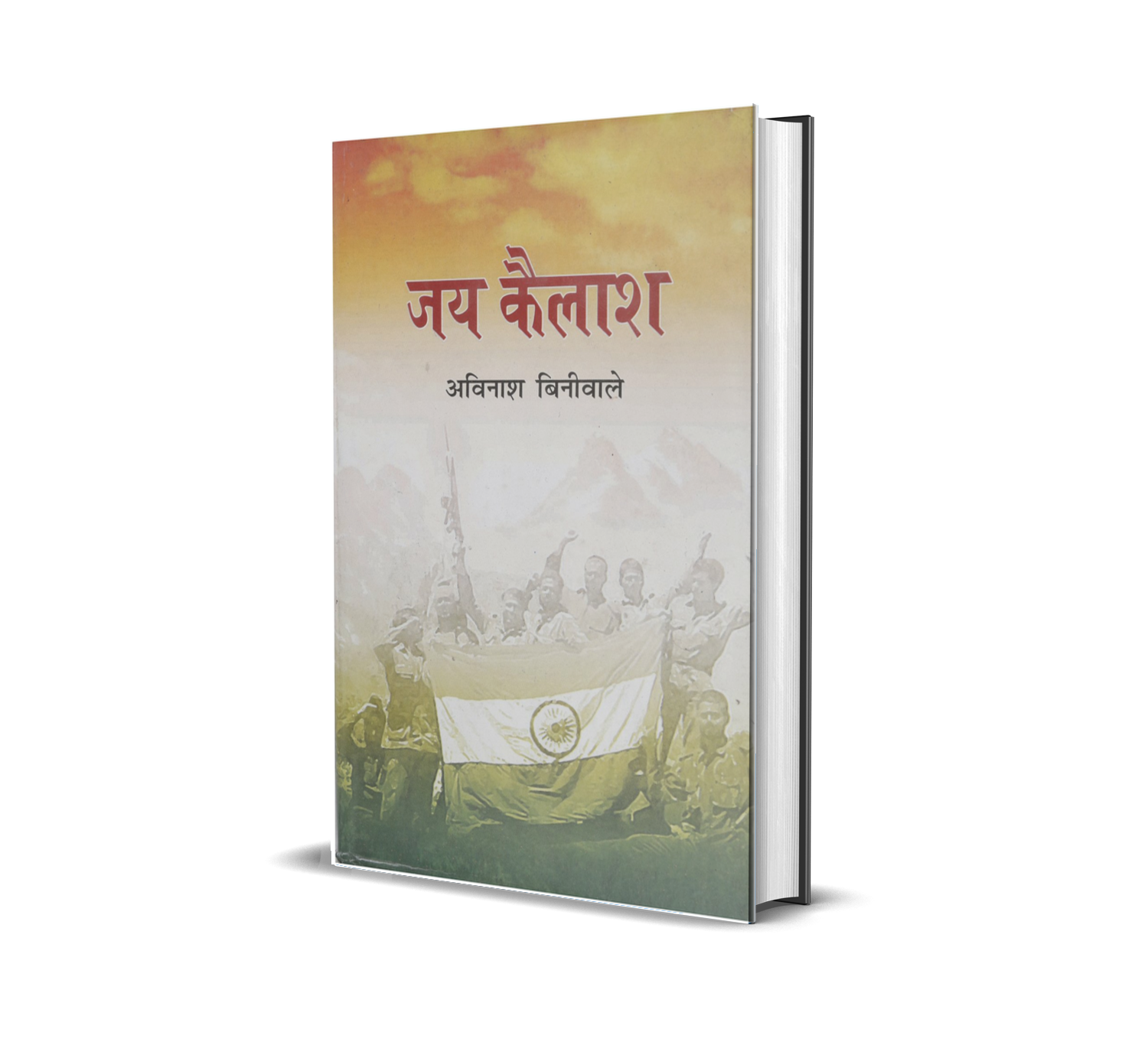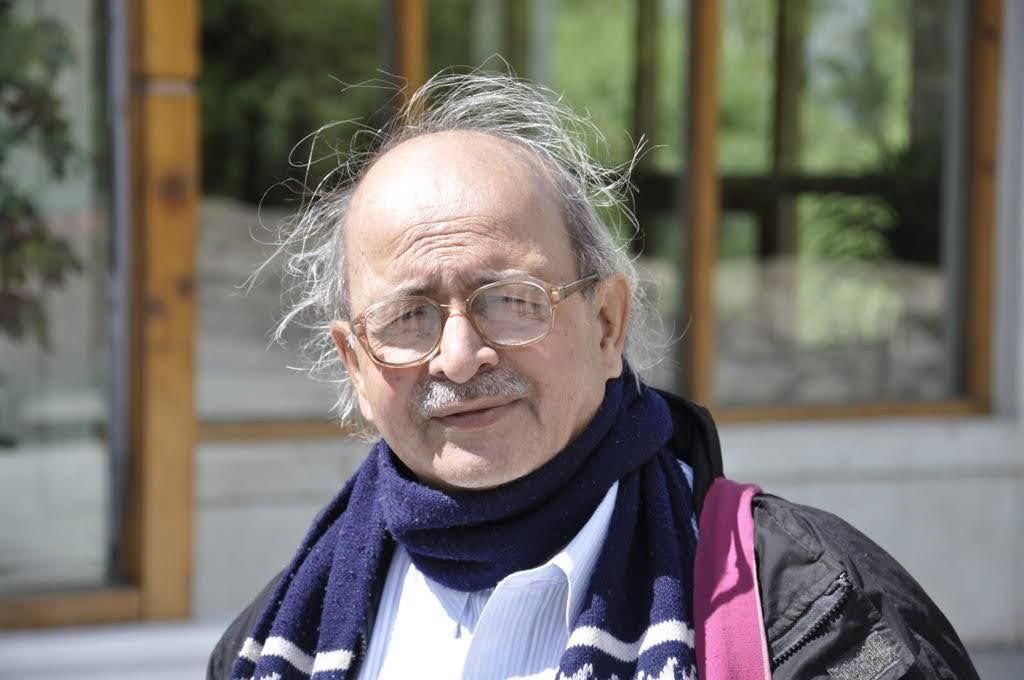Dr. Ashok Biniwale is one of veteran authors who has not just contributed to the Indian languages but also into German language. Dr. Biniwale has been awarded the Hindi Sahitya Akademi Award for his Hindi novel ‘Jai Kailash’ in 2014. He has also been honored with the Dr. Ashok Kelkar Award for his contribution to the field of Literature and Language by the Maharashtra government. Dr. Biniwale has done pioneering work in the field of German studies. Dr. Biniwale who dons multiple hats as a linguist, lexicographer, and a researcher has written 75 books. A retired professor at Elphinstone College, Mumbai he has been awarded as a part of the celebrations for Marathi Day. Currently residing in Pune; Dr. Biniwale is known for his work in languages, especially creating vowel and consonant sounds of German in Devanagari script, used for Marathi. A graduate from Fergusson College, he completed his Master's degree from Mumbai University.
In an exclusive interview with Nitish Raj; Editor-in-Chief, Today Magazine the veteran author talks about the various aspects of language, literature and translations.
Q.1: What is the importance of language in our life and literature?
AB: Unique to the species of human beings, language allows us to express our thoughts, ideas, emotions, observations, and experiences. Giving rise to an orient culture, it helps shape personalities, cultural development, social life, and the overall development of people, societies, countries, and the world. Biologically speaking, we are all animals, but what makes us different and unique from other species, is the power of language and the ability to use that to communicate. We communicate not only through words, but also sounds, movements, gestures, and signs. Evolution of language can be traced to modern Homo sapiens and hence there seems to be no evident sign of language in our very first ancestors, the very first human races on Earth. But with the language being established and evolved, the life of human beings changed into a more developed race. Even today in the digital era, there’s the use of language and codes in the computers and technological advancements.
When we speak of literature, there’s absolutely no literature without language. It is the beauty of language that establishes the aesthetics of every literary piece created. The selection of words to express the intended message and stimulate interest in the learning of language is a vital part of language and literature. The attachment of language to literature has progressively evolved and continues to do so.
Q.2: How do translations impact our culture?
AB: Translations are very important. They help in the interchange of ideologies, thoughts, expressions, and sentiments between cultures in a comprehensible manner. Creating an ethical and innovative way of thinking, letting the generations leap out of the restrictions of languages and mingle with the cultures, traditions, and aspects of different communities, regions, and borders. Translations play a key aspect of communication which in turn is an important element of any societal setup.
If my literary work is translated into another language, say for example my book ‘Iran-Paarshyanche Teerthkshetra’ is translated from Marathi to Hindi, it crosses the restrictions of language and reaches more reader-base and also helps those readers experience Iran in their own way through their language. Various natural elements appear to be different in different regions and countries due to the planetary positions, geographical factors, and environmental aspects. Moreover, translated works bring more relatable and comprehensible description and narrative of a story, characters, places, and various elements to the readers and lets them have an immersive experience. I remember the story ‘Tower of Wisdom’ from the Old Testament of the Bible, and relate to the fact that language has the power to unite or divide, the choice is left to us, and translations certainly help fill the gap and unite cultures.
Q.3: What inspired you to learn and master multiple languages?
AB: My father was posted in France for three years when I was a child. My relative (Sister’s husband) worked for the Swatantrata Senanis and against the British Empire in India, while he was posted in France (Paris). I used to hear them converse in French which made me curious to know what they were discussing. My general curious nature to know, be aware and be involved in everything that was happening around me, and my strong desire not to be left out of a conversation, being aware of whatever was being communicated around me, made me develop a keen interest in languages. I used to observe people speaking different languages due to my extensive traveling experiences, and I would always be curious to know what they were talking about. That is how I would learn a new language and converse with people as I feel more involved and included in their discussions. My mother played an important role in helping me develop a keen interest in learning various languages as she always believed in me. I believe that for Indians, learning different Indian languages is easier, and for me, it was a mix of keen interest, curiosity, and need that instilled in me the willingness to learn various languages from across the world. I learned Tamil back in the 1960s when I was traveling by train and could not read the names of the stations, people thought I was illiterate and that triggered in me the desire to learn the language. I picked up Kannada as I used to visit my uncle in Belgaum. I learned German at Fergusson College, Pune and I grasped Russian by a native Russian teacher at Ranade Institute. I learned French from my father and Aunt. The basics of any language can be learned within 24 hours.
Q.4: How did your literary journey begin?
AB: Coincidentally! My wife’s uncle who made predictions for underground water sources and reservoirs, once said to me that I would be writing a lot in my life. I simply laughed away as did my family who had no clue it would become true someday. When I traveled to Kailash Manas in 1982, I had a mesmeric experience that I wanted to share with the world. Several months later, there was a news telecast that spoke of two pilgrims who were on Kailash Manas Yatra and due to a natural mishap, lost their lives. The Kailash Manas Yatra is difficult and it was even more daunting during those times. The news shook me to the core and I began to contemplate that I had only returned from the Yatra a few months ago, safe and sound. I was deeply disturbed and decided that I was alive for a reason, and the one that felt more pressing at the moment was to share my experience with the world. That’s how I began writing the book ‘Jai Kailash’ and the ethereal experience.
My writing journey and keen interest in writing began during my graduation and post-graduation years when I used to write columns for ‘Loksatta’. My column was so appreciated and acknowledged that my contract was renewed consecutively for three years as opposed to a one-year contract during those days. My very first book was inspired by the famous German Drama ‘Bertolt Brecht’ which I have also translated into Marathi. My writing began quite early but my books were published quite later. Some of my works took several months and even years to be published.
Q.5: How has traveling influenced your life and writing?
AB: Traveling helps us write with experience and makes our writing based on our real-time observations and thought processes. I prefer experiencing a place before I present it to the readers and where I do not have to simply imagine the details but simply extract from my memories and experiences. I also leave room for the readers to put their thoughts to imagine and interpret where I prefer not giving away the information, thoughts, ideas, and details entirely. For imagination and appropriate description, you need experience. Actual experience supersedes the mere dependency on imagination.
It is my extensive traveling that has largely influenced my literary translations of German and Marathi. Marathi literature has roots back to the 13th century and from it has constantly evolved through social events and phases in the timeline of history. Following the bhakti movement, depicting warriors and gods in the modern times of stories and fiction, it has been widely recognized. German literature has beautifully crafted stories from the genres of romance and realism. There has been fragmented development throughout time and the German literature has witnessed and enjoyed uninterrupted brilliance through the timeline of history. Both languages have a rich and expansive literary legacy.
To depict the elements of a literary piece most authentically, it is imperative to experience the magic of travel.
Q.6: What advice would you give to the aspiring youngsters?
AB: ‘See the World and experience the World, with open eyes, heart, and mind’! Learn different languages and cultures and indulge in the joy of interacting through communication. In earlier times, there was the custom of ‘Deshatan’ for people to travel around the country and visit the tourist attractions, pilgrims, and historical places, to experience nature and culture in its diversity. I believe that it was a beautiful tradition. To travel with family is fun, but to experience a place in its true sense and learn and observe more about the place, travel alone.






